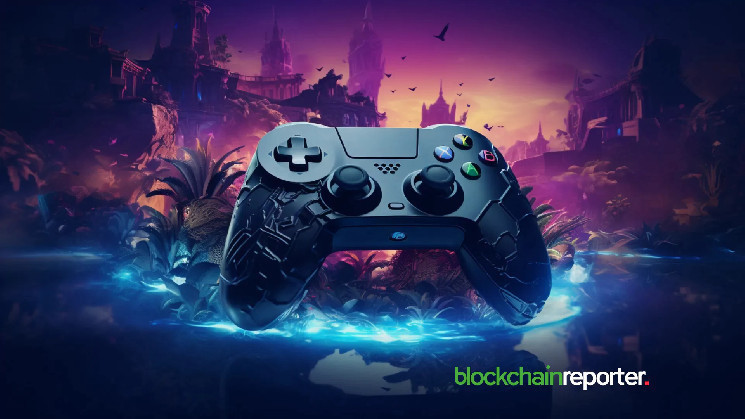Introduction to the Blockchain Revolution in Gaming The integration of blockchain technology within the gaming sector represents a profound metamorphosis in the paradigms of game development, implementation and player interaction. Blockchain, with its immutable ledgers, consensus algorithms and cryptographic guarantees, provides a crucial infrastructure backbone for the evolution of the gaming industry. This groundbreaking technology paves the way for the arrival of decentralized gaming ecosystems, where smart contracts replace traditional centralized management. These advancements not only democratize the gaming experience, but also introduce mechanisms for verifiable game fairness, ownership of non-fungible tokens (NFTs), and the integrity of cryptographic transactions, redefining the concept of player sovereignty in virtual domains.
Decentralization Ascendant
The New Gaming Ecosystems Decentralized gaming platforms represent the industry’s shift toward independence from centralized authoritative entities, leveraging the power of blockchain’s inherent decentralization and the automation capabilities of smart contracts. These platforms signal a move toward a new paradigm in which game logic, asset provenance, and economic exchanges are regulated by immutable smart contracts on a distributed ledger infrastructure. This removal of intermediaries ensures a transparent, accountable and fair gaming environment, addressing traditional concerns about opaque governance and trust. It marks a significant departure from conventional frameworks and ushers in an era of enhanced player empowerment and fair stakeholder participation within gaming economies.
The Blessings of Blockchain
According to insights from mycasinogames.com and similar platforms in the online gaming and gambling industry, Fair Play and Secure Transactions Blockchain technology provides essential benefits to the gaming world, mainly through mechanisms that ensure verifiable fairness and the security of transactions. The implementation of cryptographic algorithms and consensus methodologies inherent in blockchain enables the verification of fair gameplay, allowing participants to independently determine game outcomes through transparent ledger records. At the same time, blockchain guarantees the security of transactional integrity and the authenticity of asset provenance through cryptographic hashing, facilitating tamper-proof registration. This infrastructure not only increases security, but also promotes the emergence of a new digital economy within gaming ecosystems, where in-game assets and activities have real-world economic implications.
Navigate the challenges
Scalability and Adoption Despite blockchain’s transformative promise, its convergence with gaming faces certain obstacles. Scalability, a facet of the blockchain trilemma involving transaction throughput and latency, poses a formidable barrier to mainstream adoption in gaming. High demand scenarios require innovations such as layer 2 scaling solutions, sharding or alternative consensus algorithms to balance transactional throughput with the principle of decentralization. Furthermore, the complexity associated with understanding blockchain technology and digital currencies poses a significant obstacle to broad player involvement. Overcoming these challenges is critical for blockchain-enabled gaming platforms to fully realize their disruptive potential.
Limits of innovation
Blockchain gaming platforms unveiled platforms such as Decentraland and The Sandbox embody blockchain’s disruptive influence on gaming and illustrate the technology’s ability to create player-controlled, economically dynamic virtual empires. These ecosystems use Ethereum-based smart contracts, allowing players to create, own and monetize virtual assets and experiences like NFTs. The integration of DeFi (Decentralized Finance) principles within Axie Infinity presents a new dimension of blockchain’s potential, merging gameplay with cryptocurrency monetization mechanisms, highlighting the economic foundations of blockchain gaming’s value proposition.
Forecasts
The Blockchain Gaming Horizon The expected path of blockchain within the gaming industry envisions an innovation-packed future characterized by increased game integrity, economic inclusivity, and improved player autonomy. The expected advancements in blockchain technology, such as zero-knowledge proofs, sidechains and interoperability protocols, aim to reduce current limitations regarding scalability and user accessibility. The continued integration of DeFi and NFTs with gaming suggests the emergence of an ecosystem in which games transcend their traditional entertainment role and become platforms for economic participation and asset creation, reimagining the boundaries of digital and economic interactions.
This expert-level exhibit explores the intricate technical details and transformative effects of blockchain on the gaming industry, shedding light on the subtle challenges and revolutionary possibilities inherent in decentralized gaming platforms.












